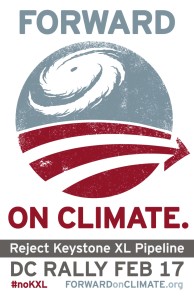I started following the campaign for offshore wind in Maryland when it was first introduced to the Maryland General Assembly three years ago. On Tuesday, February 26th, the bill was successfully voted out of the Senate Finance Committee. This achievement had been unaccomplished in the campaign’s previous three years.
I was able to attend both the House and Senate committee hearings on the legislation this year and heard the arguments, first hand, from the opposition in the retail and grocery industries. Their arguments were surprising as they used short-term rationale to fight long-term progress, arguing that offshore wind would increase commercial utility costs, which hardworking Marylanders would have to pay for in increased product prices.
And while I do not doubt their threats of increased costs to consumers, I do believe this issue needs to be addressed in a larger context. I would like to take this one step further, beyond grocery and retail store utilities, and broaden this discussion to address what it could mean for our wellbeing if we continue to allow short-term arguments to justify inaction to the long-term problems of climate change.
Climate change is a reality and reacting to its adverse effects comes with a significant economic cost. Crop yields are being affected due to weather events like droughts, flooding, and fires. Sea-level rise impacts those who are living in inundation areas who will be forced to pay higher insurance costs (if they can get coverage) or move to a new location. Natural disasters, strengthened by the effects of climate change, come with a very expensive price tag. And those same weather events impacting our crops yields and the areas we live in are also effecting our health, with an increase in heat related illnesses, a rise in respiratory diseases, as well as an increase in vector-, food-, and water-borne diseases. Climate change is not just a scientific term, a temporary weather occurrence, or something often equated with Al Gore, this is something that has a direct impact on our health and wellbeing. Can we really allow short-term arguments to justify derailment of our attempts at mitigating the impact of climate change and the adverse effects it has, and will continue to have, on our society?
What was so interesting to me about the testimony provided by the opposition in the grocery and retail industries was that their industries are significant contributors to greenhouse gas emissions. The industrial food system we are dependent upon, that retail and grocery industries play a part of, comes with a significant carbon and ecological footprint. The adverse impacts of climate change are leading to droughts and fires, and other extreme weather that is directly impacting agricultural crop yields and therefore affecting the prices we see in retail/grocery stores. This point was conveniently left out of their testimony to legislators at the committee hearings.
Their short-term arguments make it appear as if offshore wind would really impact the wallets of Maryland residents, but in reality it is the impact of climate change if we remain inactive. If the retail and grocery industry really cared about the income of hardworking Marylanders, which they claimed to be concerned for in their testimony, they would help play a part in a solution to a problem they are accelerating.
I could go on about the issues with our industrial food system and the need to localize or the implications of climate change on our society, but I will save that for another time. Instead I will quit while I am ahead simply say that as the 2013 Legislative Session progresses we cannot allow short-term arguments to derail long-term progress. We cannot progress as a state and improve our overall wellbeing if we allow shortsighted arguments to skew the impact of what we are trying to accomplish. The offshore wind legislation has been able to progress despite concerns from opponents, but you never know when the next bill could be derailed by shortsighted opposition.
“Never doubt that a small group of thoughtful, committed citizens can change the world. Indeed, it’s the only thing that ever has.” – Margaret Mead
